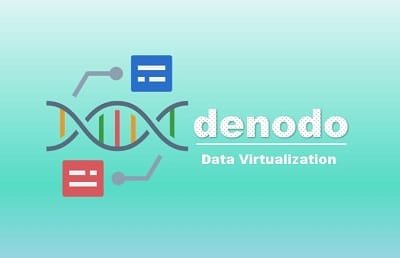Now a days companies are adopting latest cloud data visualization technologies like denodo for end users and developers in the organizations. Learn Online denodo training by our certified experts. Denodo Cloud solution whether deployed primarily in the private, public, or multi-cloud mode, eliminates these difficulties by establishing an abstraction layer and therefore enabling location transparency of a diverse set of data sources.
Module 1: Introduction to Data Virtualization
This course module will teach you the essential concepts of data virtualization(DV) and how it relates to and complements other data integration and data management solutions.
- What exactly is data virtualization?
- The architecture of the Denodo Platform
- Denodo Platform fundamentals
- Tools and applications of the Denodo Platform
Module 2: Denodo Data Virtualization Essentials
In this course module, you will learn about the scenarios in which data
virtualization is the best architectural approach, how it’s installed and
operated.
- Data Virtualization in Action
- Data Virtualization Use Cases
- How to Showcase the Denodo Platform
- Data virtualization ROI examples
Module 3: Data Virtualization Architect
This course module discusses architectural patterns for data virtualization, as well as best practices for performance optimization, data services governance, scalability, and operation
- Advanced Performance Enhancements
- Deployment Architectures
- Security, Governance, and Metadata Management
Module 4: Denodo Platform Installation
This Denodo training course module gives an in-depth understanding of all operations required to install and configure the Denodo Platform.
- Installing and configuring the Denodo Platform
- Denodo Platform Updation
- Backup and monitoring best practices
- Denodo deployment and clustering
Module 5: Denodo Platform Server Administrator
Learn how to configure the Denodo Platform for data virtualization to meet operational requirements in a variety of execution scenarios through this course module.
- Configuration of the Denodo Platform
- JVM settings
- Memory administration
- Configuration of Denodo Platform servers
- Roles and users in Virtual DataPort
- Database Administration
- User administration
- Management of roles
- Security concepts (Kerberos, SSL)
- Resource Management
Module 6: Data Virtualization Developer (Basic-Level)
This course module will introduce the concepts and terminology required to create their Denodo data virtualization.
- Data sources connection using Virtual DataPort 7.0:
- Relational databases
- RESTful data services (JSON/XML)
- Web services
- Microsoft Excel files
- Delimited Files
- Merge data to create derived views using the following functions:
- Selection
- Union
- Projection
- Intersect
- Minus
- Basic Join
- Working with the Denodo Platform:
- Query Execution
- Using data from external applications:
- As OData service
- As REST data service
Module 7: Data Virtualization Developer (IntermediateLevel)
This session covers additional data virtualization principles and terminology needed to design and deploy Denodo data virtualization projects
- Working with Denodo Views:
- Aggregations
- Compound-types
- Associations
- View Management
- Learn how to evaluate and resolve issues that may emerge by checking the Execution Trace:
- Denodo Platform Logs
- Use Cache to speed up your requests.
- Development of your own Data Services (SOAP, REST)
- Denodo Scheduler batch jobs
- Using Denodo Scheduler to preload the cache
Module 8: Data Virtualization Developer (AdvancedLevel)
This module provides advanced knowledge of data virtualization strategies and best practices for getting the most out of Denodo data virtualization initiatives.
- Organizing Denodo Development Teams:
- Virtualization of data Project Management
- Data Modeling and Data Virtualization
- Version Control System
- Security in Development (Kerberos, SSL, …)
- Enhancement of performance:
- Denodo Query Optimizer
- Both Static and Dynamic Optimizations
- Data Management:
- The management of physical data saved via the Denodo Platform.
- Management and Governance of Metadata
- Documentation Development
- Development best practices
